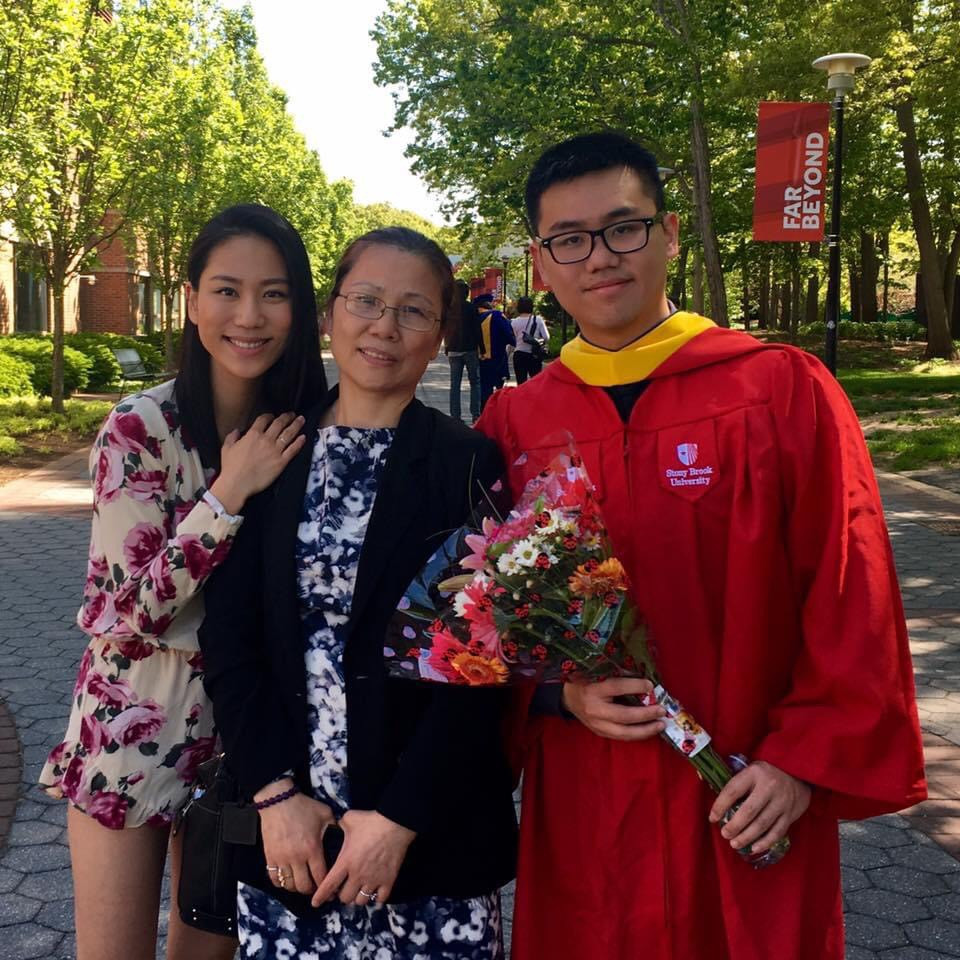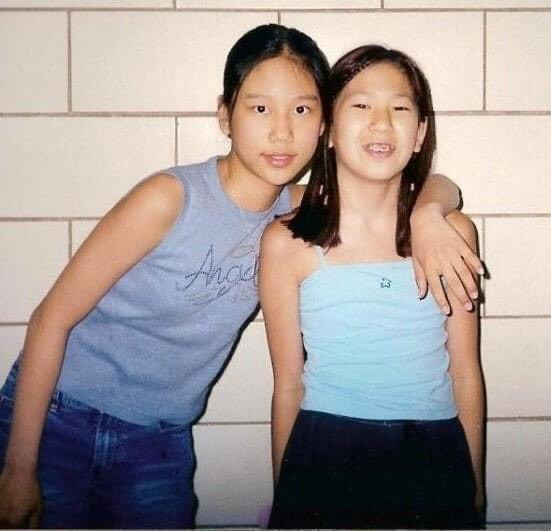University is a luxury that many poor students can’t afford
A family picture for my baby brother’s 5th birthday. Courtesy Diane Yeung
Financial aid is not enough for students living in poverty
I grew up in Brooklyn with a brother and an immigrant single mom, our family income dipping below the poverty line for much of my childhood. Experiencing bouts of poverty in my youth caused what psychologists call trauma due to poverty.
I cut school for the first time in fifth grade, assuming my first job as my mother’s translator when we applied for food stamps and welfare. Cutting school later became a compulsion, leading me to eventually drop out of high school. I somehow managed to make it into a community college, but barely made it through the second semester.
I dropped out of college 15 years ago despite qualifying for financial aid. Our family income was low enough that, even while working full-time, I was able to demonstrate financial need for tuition relief. But there were so many other barriers as a student coming from a poor background, including pressures from jam-packed schedules, chronic stress and exhaustion. Despite what some believe, a financial-aid-to-bachelor’s-degree pipeline simply does not exist.
I began working when I was 14 years old. And by 16 years old, I was paying for our electricity and phone bills with a full-time job as a personal assistant that paid $7 an hour. At 18 years old, I found a job as a receptionist that paid marginally more at $10 an hour, and kept this job throughout my time at the community college. Attending college with a 9 to 5 job meant I could only take night classes on top of the hour and a half commute each way between the office, school, and home. The subway was where I studied, rested, and ate meals.

The long commutes also meant that nearly all of my time spent on campus was in classrooms. Any time outside of class would be spent in the bursar’s or registration offices. Between income tax statements, letters of intent, and gathering transcripts, it felt like I spent more time on proving I needed aid than the actual education I was working towards. As a result, I never saw the inside of the library or cafeteria.
Participating in student life was an elusive luxury. It was hard to imagine how I’d possibly squeeze in extracurricular activities, join student clubs, or work unpaid internships since I was working 40 hours a week and commuting for another 12.
My weekends were spent panicking over the backlog of schoolwork that piled up during the week, as I struggled to maintain the full-time course load that financial aid mandated. I can’t remember the GPA I needed to maintain my financial aid status, but I vividly remember that I’d be in a constant scramble to keep my head above water. Every assignment felt like an impossible battle against time. The closer I got to failing my classes, the less I cared about them.
Eventually, I walked off of my university campus and never went back. I didn’t speak to an academic advisor or notify the school that I was dropping out—I simply had no capacity to declare that I was giving up.
Despite what some believe, a financial-aid-to-bachelor’s-degree pipeline simply does not exist.
A couple of years later, my brother graduated high school and enrolled at a university in Long Island, just two hours away from Brooklyn. He attended a state university that was at least four times the price of a community college, and still had to work despite having two scholarships and financial aid. For the next five years, I watched joylessly as he struggled the way I did—working as a busboy on the weekends, commuting hours from campus to the city, only to make $4 an hour before tips.
When my younger brother graduated from college, it didn’t feel like an achievement for my mother and I. Instead, we felt heavy and sick with memories of my teenage brother working until 1 a.m. on the weekends, studying on the train back to campus on Sunday nights. Nevertheless, I beamed with pride on his graduation day, knowing he conquered every hurdle that stood in his way.

During the pandemic, I returned to university like so many others. After working 12 years as a designer in the fashion industry, it was hard to give up the salary and position I had worked so hard for. But in many ways, the decision to pursue a bachelor’s degree was a luxury in itself. This time, I’m acutely aware that pursuing an undergraduate degree remains a privilege for those who came from backgrounds similar to mine. From financially independent students to those living below the poverty line, the road to graduation is riddled with obstacles.
According to Dr. Eric Weissman of the University of New Brunswick, up to 4 per cent of postsecondary students across Canada are experiencing homelessness. Nationwide studies by non-profit Meal Exchange say that almost 40 per cent of Canadian students are facing food insecurity. Unsurprisingly, these studies suggest that financial insecurity among postsecondary students is present today, on campuses across the nation.

When I think of Concordia’s 24-hour libraries and free lunches at The Hive and People’s Potato, I am reminded that these are crucial services for the students among us who need them most. For poor students—some of whom we pass by in hallways, sit beside in classrooms, share rides in elevators with—meeting immediate needs like food and shelter are their primary concern.
My recent return to university was made possible by more than a decade of hustle in the private sector, an incredibly supportive partner, and the generosity of friends and family. But the more it took for my experience to resemble what was advertised in university brochures, the more certain I became that dropping out was my only option years ago. At the time, the cost of a ticket out of poverty was simply too high. But if poor students face such overwhelming odds on their road to graduation, then perhaps education is less of a right than it is a privilege.




_600_375_90_s_c1.jpg)